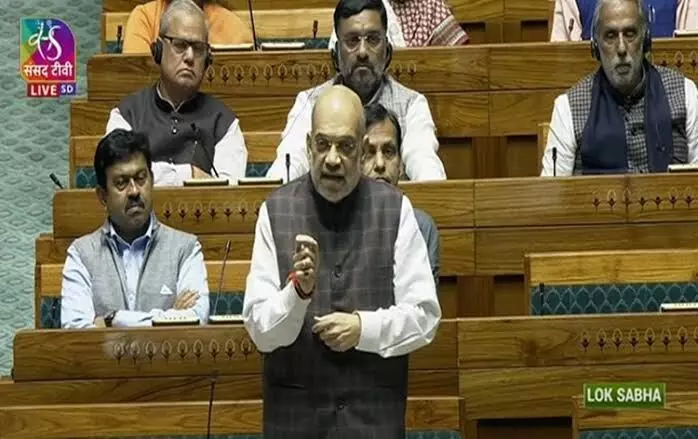Historic Overhaul in Criminal Justice System as Parliament Passes Three Key Bills

⁷In a momentous development today, Union Home Minister and Minister of Cooperation, Shri Amit Shah, addressed the parliamentary discussion on the Bharatiya Nyaya (Second) Sanhita, 2023, the Bharatiya Nagarik Suraksha (Second) Sanhita, 2023, and the Bharatiya Sakshya (Second) Bill, 2023 in the Lok Sabha. Successfully passing these bills, designed to reshape India's nearly 150-year-old criminal justice system, follows meticulous deliberation.
Guided by the stewardship of Prime Minister Shri Narendra Modi, the Modi government instigated paradigm-shifting changes to prevailing laws, centering on the principles of Indianness, the Indian Constitution, and the welfare of the Indian populace. Shri Amit Shah accentuated the pivotal transition from a punishment-centric to a victim-centric justice system, signifying a notable departure from colonial-era laws prioritizing the protection of the British Crown over addressing crimes against individuals.
The Home Minister illuminated the salient features of the new legislation, encompassing a redefined scope of crimes with a focus on offenses against women and children, matters impacting human life, national security, electoral transgressions, and more. Notably, the laws introduce robust measures to combat terrorism with a policy of zero tolerance, ensuring that no terrorist can evade justice.
In a historic stride, Prime Minister Narendra Modi's government eradicated the sedition section, substituting it with the charge of treason. Shri Amit Shah underscored the commitment to a justice system aligned with the spirit of the Indian Constitution and prioritizing the nation's security.
The Home Minister detailed the comprehensive approach taken in shaping the laws, integrating 3200 suggestions and convening 158 meetings to consider diverse perspectives. The new bills establish transparent timelines for filing charges, magistrate cognizance, and verdict delivery, streamlining the judicial process for expeditious outcomes.
Shri Amit Shah emphasized the incorporation of technological advancements into the laws, positioning the Indian justice system among the world's most advanced. Measures such as the integration of forensic science, mandatory audio-video recording of statements in rape cases, and the establishment of the Directorate of Prosecution at state and district levels underscore the commitment to enhancing the justice delivery system.
The bills also introduce provisions for the Trial in Absentia, enabling the punishment of criminals and the confiscation of their assets even in their physical absence during the trial. Significantly, efforts have been made to rationalize sentence remissions and provide bail for under-trial prisoners who have served one-third of their prescribed punishment.
In conclusion, Shri Amit Shah reaffirmed the Modi government's adherence to its promises, citing past accomplishments such as the abrogation of Article 370, the construction of the Ram temple, and the abolition of triple talaq. The Home Minister expressed confidence that the implementation of these new laws would instigate a transformative change in the country's justice system, aligning it with the aspirations of the Indian people.
